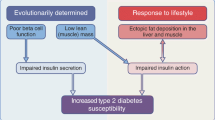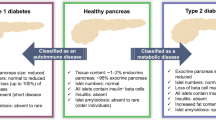The Otuska Long-Evans Tokushima Fatty (OLETF) rat is one of the well-characterized animal models for the study of type 2 diabetes. Our previous QTL mapping identified 11 loci responsible for non-insulin-dependent diabetes mellitus (NIDDM) susceptibility in the OLETF rat. Here we generated a series of congenic animals by individually introgressing all 11 OLETF-derived NIDDM loci into a normoglycemic F344 background. Subsequent oral glucose tolerance test revealed that the congenic strains for Nidd1/of, Nidd2/of, Nidd3/of Nidd4/of, Nidd7/of, and Nidd10/of showed significantly higher levels of blood glucose in comparison with parental host strain F344. Furthermore, simultaneously made heterozygote animals for Nidd1/of and Nidd2/of did not increase blood glucose levels, indicating that these loci are recessively inherited as predicted by the QTL analysis. Congenic strains for the other five loci—Nidd5/of, Nidd6/of, Nidd8/of, Nidd9/of, and Nidd11/of—were apparently normoglycemic, presumably owing to heterosis or because the effect of these loci may not be detected unless interactions with other OLETF genes exist. We believe that these congenic strains should provide useful agents for decomposing complex diabetic traits and for positional cloning.
Similar content being viewed by others
Author information
Authors and Affiliations
Rights and permissions
About this article
Cite this article
Kose, H., Moralejo, D., Ogino, T. et al. Examination of OLETF-derived non-insulin-dependent diabetes mellitus QTL by construction of a series of congenic rats . Mamm Genome 13, 558–562 (2002). https://doi.org/10.1007/s00335-002-2199-y
Received:
Accepted:
Issue Date:
DOI: https://doi.org/10.1007/s00335-002-2199-y




